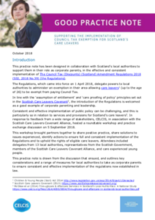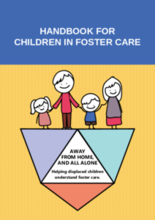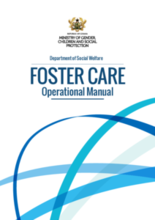Displaying 1101 - 1110 of 2221
This practice note is drawn from the discussion and outlines key considerations and a range of measures for local authorities to take as Corporate Parents to ensure consistent and effective implementation of the regulations, now established in law.
This is a child-friendly summary of a handbook developed specifically to create a Foster Care Programme for unaccompanied and separated children (UASC) within the Rohingya community in Malaysia.
This is a child-friendly summary of a handbook developed specifically to create a Foster Care Programme for unaccompanied and separated children (UASC) within the Rohingya community in Malaysia.
The purpose of this Foster Care Operational Manual is to provide guidance to Department of Social Welfare (DSW) officers and Foster Care Agencies on the delivery of foster care services in line with the Children’s Amendment Act, 2016 and Foster Care Regulations 2018.
This study evaluated the psychometric properties of a Portuguese version of the Compass of Shame Scale using an adolescent sample, to investigate if its internal structure was valid for diverse adolescent subsamples, and to gather evidence on the construct validity of the instrument.
An important goal of out of home care is to prepare the family and child for reunification. Practitioners are often required to make the decision whether to reunify a foster child with their biological family. This study examines this complex reunification decision in Portugal.
This study evaluates whether the psychometric properties of the Pediatric Symptoms Checklist-17 (PSC-17), a common behavioral health measure typically used as a dichotomous screening tool for mental health needs, support its use as a continuous measure for tracking behavioral health over time.
The objective of this study was to identify different kin and fictive kin network support profiles available to children in foster care and examine whether these profiles predict behavioral outcomes.
The aim of this study was to examine trajectories of latent psychopathology factors—general (P), internalizing (INT), and externalizing (EXT)—among children reared in institutions and to evaluate whether randomization to foster care is associated with reductions in psychopathology from middle childhood through adolescence.
It has long been recognized that early adversity represents a strong risk factor for the development of later psychopathology.



